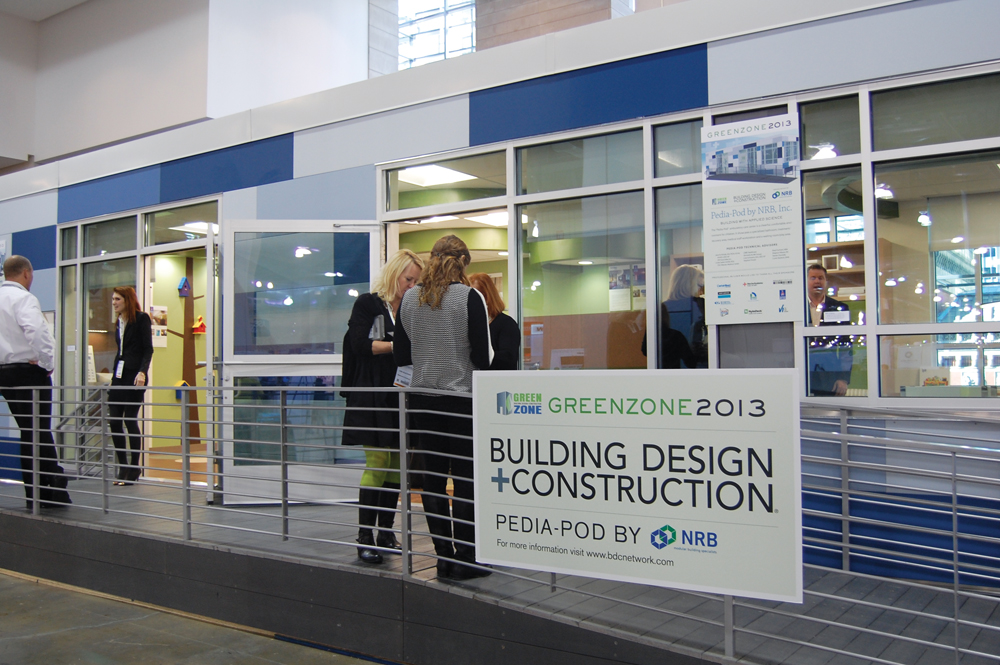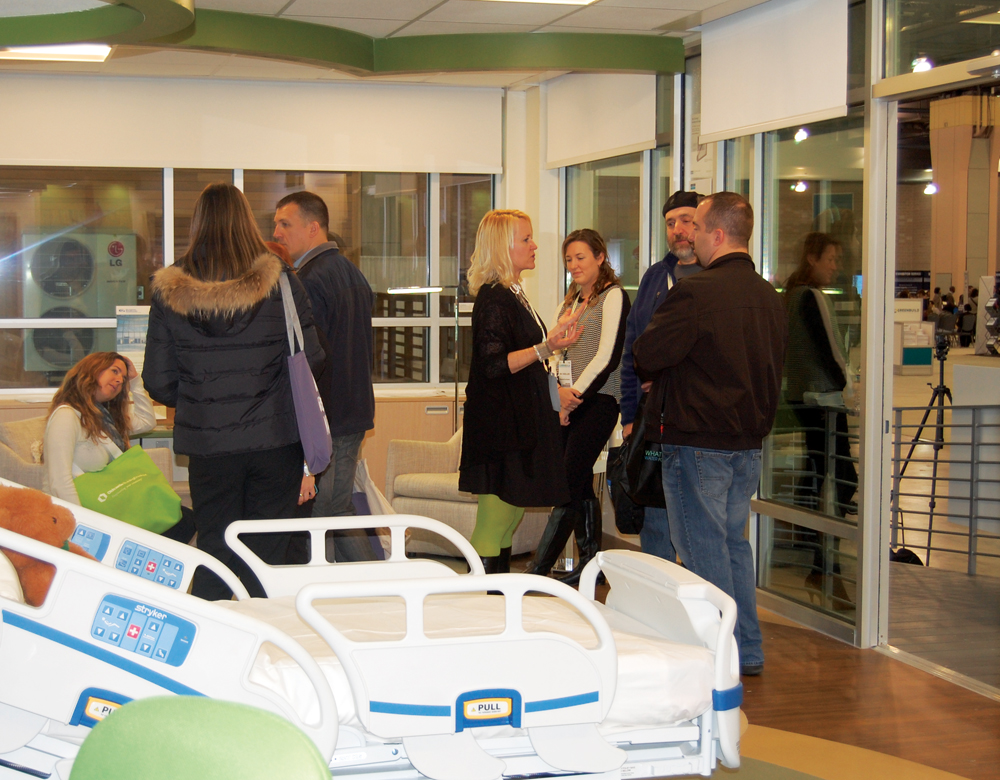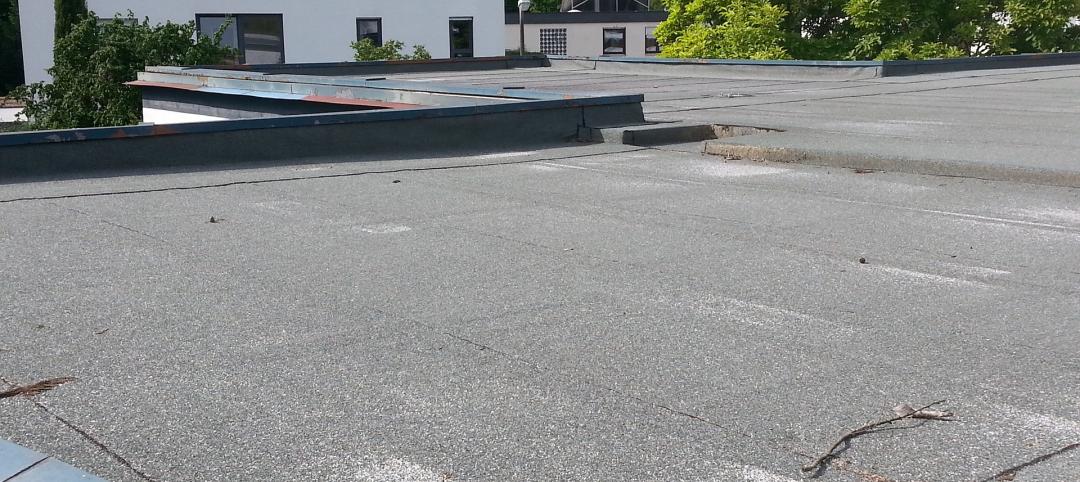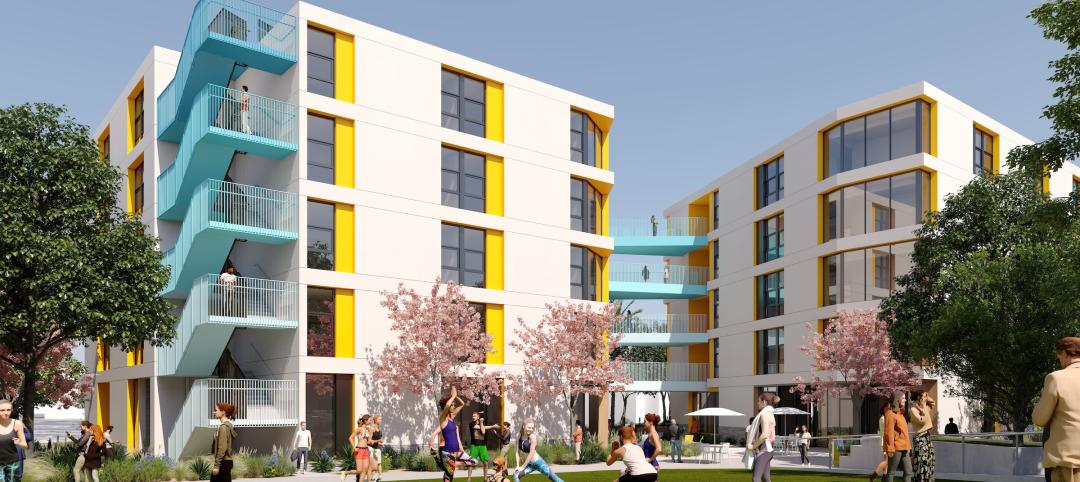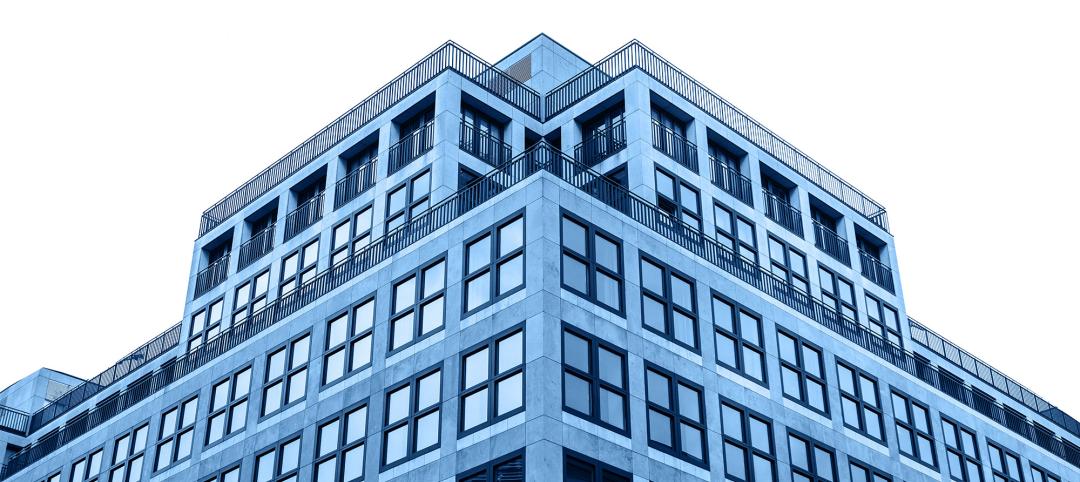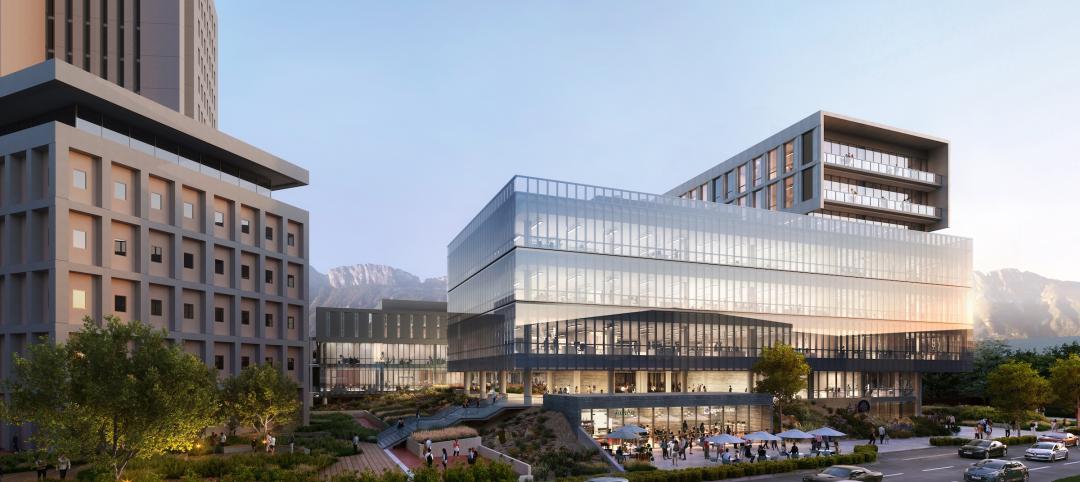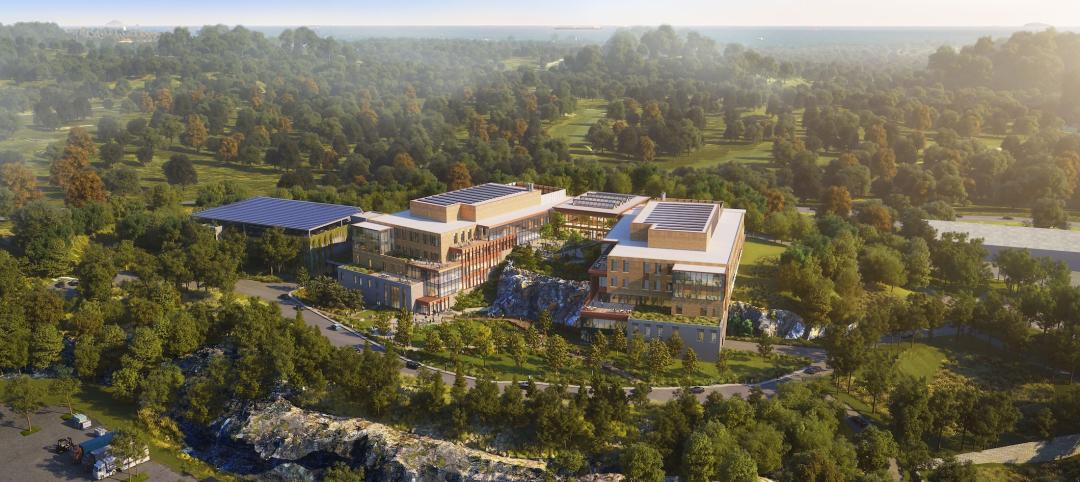Greenbuild 2013 in Philadelphia was the site of a unique display—Pedia-Pod, a modular pediatric treatment room designed and built by NRB (USA) in Ephrata, Pa., in collaboration with the editors of Building Design+Construction, SGC Horizon LLC, and their team of medical design consultants. More than a thousand Greenbuilders toured the modular unit on November 20 and 21 at the Pennsylvania Convention Center, in Philadelphia.
Off-site construction is gaining momentum and recognition within the AEC and building owner community as a viable alternative to traditional on-site construction methods. Pedia-Pod is a blend of architectural form and medical function that is relevant to the specialized, comforting care needed for the treatment of children.
The Pedia-Pod modular concept, with its sustainable design and construction principles, can be applied to many types of healthcare facility needs, from bathroom pods to physician offices, imaging clinics, ambulatory care centers, and even complete hospitals.
GROWING DEMAND FOR PREFAB IN HEALTHCARE
“We’re definitely seeing an increased demand for prefabricated and modular components being used in the healthcare market sector, especially with large hospital bed expansions and critical access hospitals,” said Allen Post, AIA, an architect with Perkins+Will’s Atlanta office who toured Pedia-Pod. “Whenever there is a lot of repetition, such as a patient bed tower with tens to hundreds of bathrooms, headwalls, and ceiling components, or rural area hospitals with a limited local construction labor force, off-site fabrication becomes a viable option.”
Post said that solutions that have the potential to reduce construction time and cost while improving quality and safety are becoming more accepted practices in the healthcare sector. “The Pedia-Pod prototype is an example of what off-site construction can achieve within the healthcare market,” he said.

Pedia-pod’s sofa can be converted into a pull-down bed (green area) for a parent who wishes to remain overnight with a hospitalized child.
Pedia-Pod combines green products with an efficient off-site construction process, creating a high level of sustainability.
Structural steel framing, steel deck, and steel stud infill lend durability to the building as well as a very high amount of recycled content. The building envelope contains closed-cell spray foam insulation with recycled content in the roof and floor, Greenguard-certified sustainable insulation in the walls, a specialized weather/rainscreen barrier, lightweight cement board subfloor, and mold- and moisture-resistant wall sheathing with 95% recycled content.
The structure has a white roof membrane with an SRI index of 99. The exterior cladding is a handsome architectural fiber cement panel containing Forest Stewardship Council–certified wood pulp and fly ash waste from landfills.
A unique interior drywall product actively removes harmful VOCs from the air, while another drywall component attenuates noise; both are moisture- and mold-resistant. The interior paint is a zero-VOC formula, and the floor finish is a long-lasting, slip-resistant product with recycled content requiring no harsh chemicals for cleaning. Millwork contains FSC-certified board.
The building also features high-performance windows, mechanized shades for daylighting control, energy-efficient lighting and controls, and water-saving plumbing fixtures.
“Building off-site in a controlled environment means better waste management, less vehicular travel, and less disruption at the site,” said Don Engle, General Manager, NRB (USA). “Because Pedia-Pod is one module, it was 100% complete when it left the plant. Once in place, it was set up and ready to go in just hours.”
After Greenbuild, Pedia-Pod was shipped back home to Ephrata and “recycled” for display purposes. Building owners, architects, and contractors will soon be able to tour the structure to see the level of complex features, finishes, and building science technology that off-site construction can bring to the healthcare and commercial/institutional construction markets.
For more on the Pedia-Pod, visit: http://www.bdcnetwork.com/greenzone2013/index.html

Mechanized roller shades let daylight in but can be closed with a handheld device from the patient bed for more privacy or less light.

A corner space offers comfortable seating for visitors and family members, plus a desktop area for parents wishing to catch up on work while the child is sleeping. Parts of the walls are covered with a dry-erase paint coating.

Artistic elements add color and ‘positive distraction’ for the child, as recommended by pediatric healthcare experts.

A cutout in Pedia-Pod’s cladding allowed Greenbuilders to see the correct method for installing energy-saving, high-performance vacuum insulation panels, a silicone air barrier system, and structural glazing sealant.
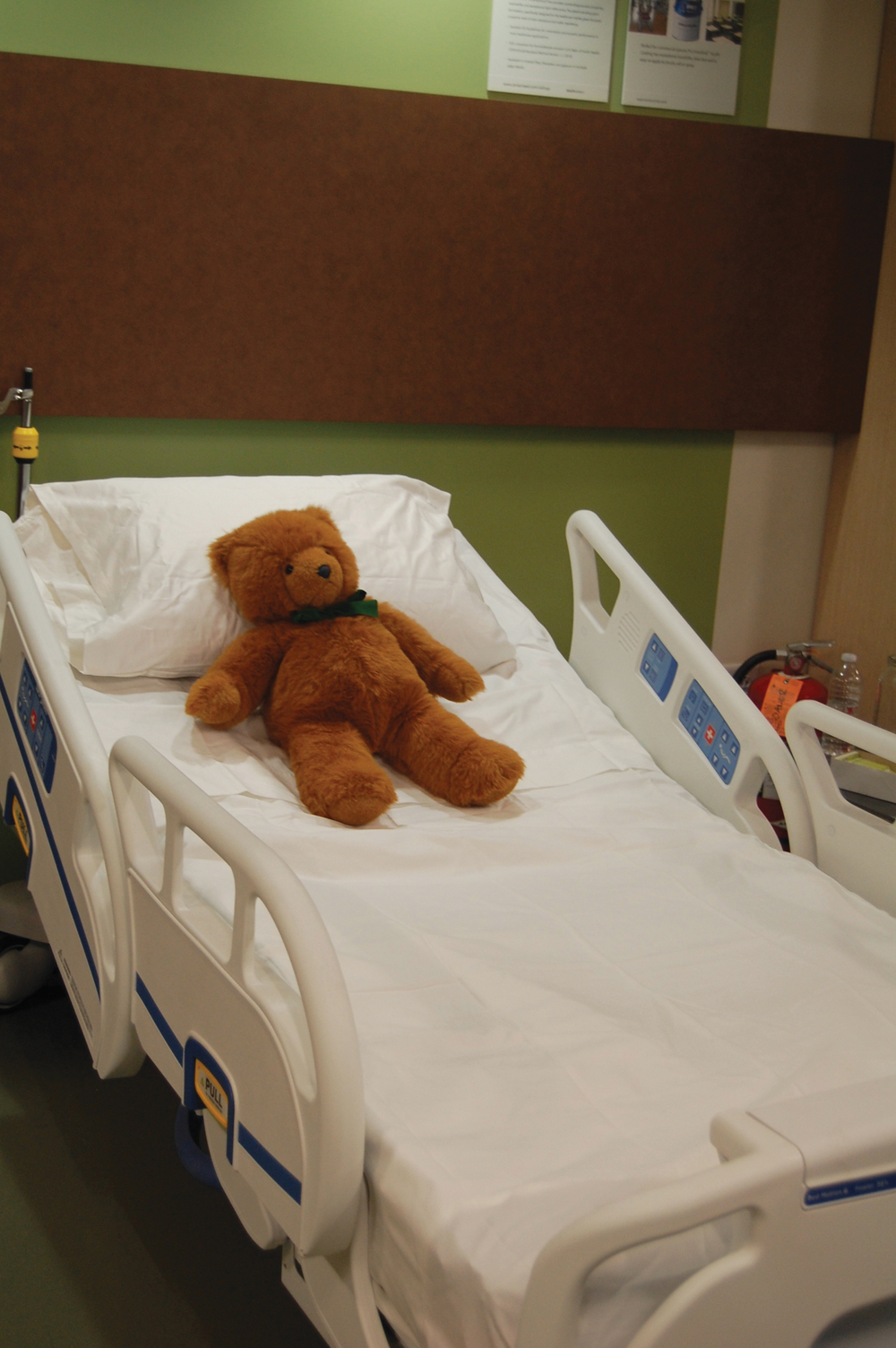
Patient area. Experts Jane Rohde, AIA, FIIDA, ACHA, Linda Gabel, IIDA, AAHID, and CBRE Healthcare advised on the design of the unit.

Last month, more than a thousand green builders toured Pedia-Pod at the Pennsylvania Convention Center, Philadelphia.
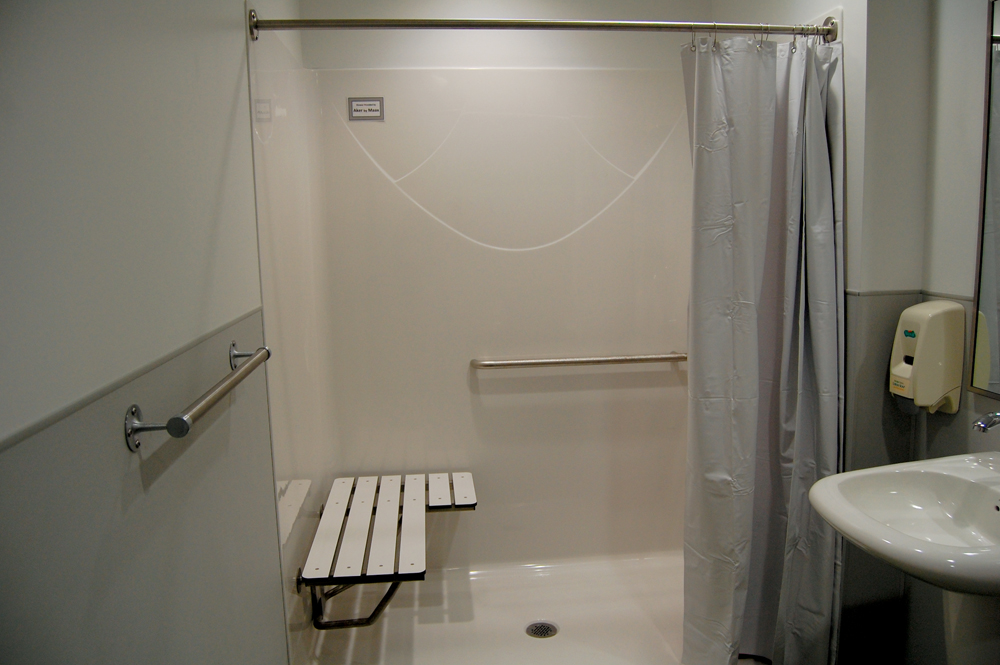
The ADA-compliant bathroom features grab bars throughout and an accessible shower.
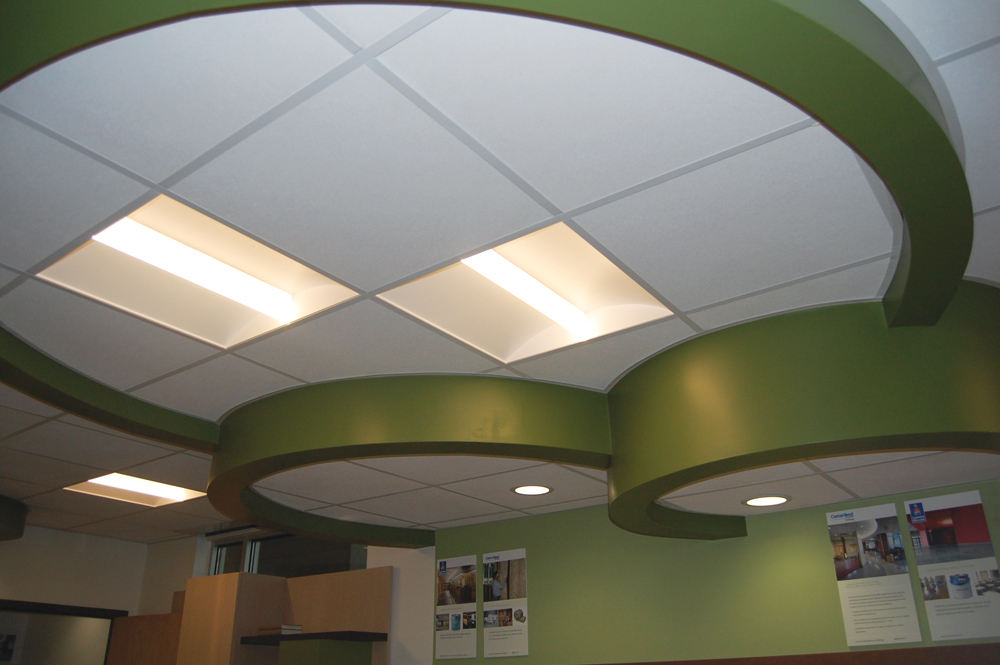
Energy-efficient lighting/controls provide illumination without disrupting the child’s circadian rhythm.
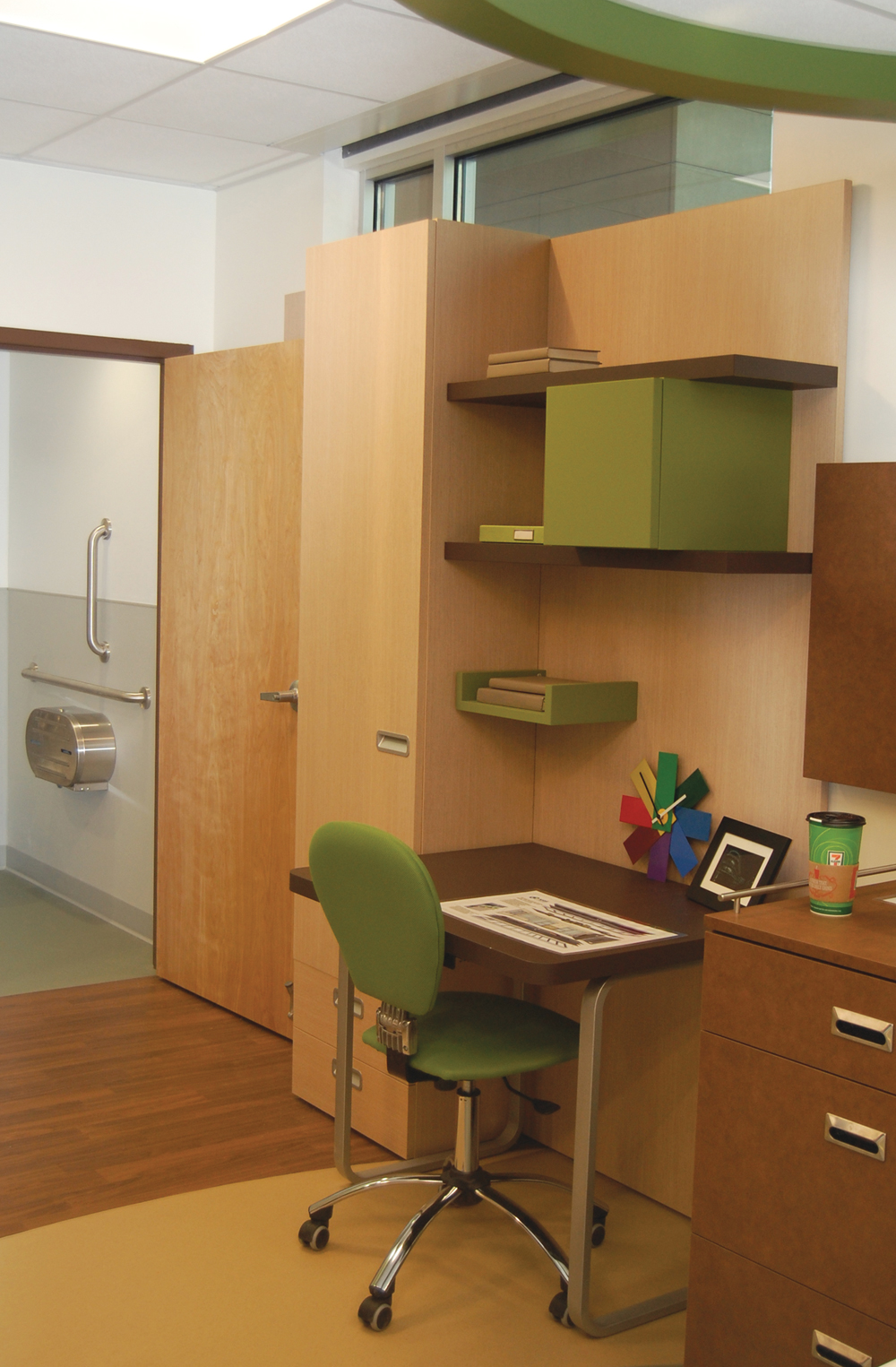
A convenient desk area offers storage and organization for medical staff, while taking up minimal space.
Related Stories
Standards | Apr 22, 2024
Design guide offers details on rain loads and ponding on roofs
The American Institute of Steel Construction and the Steel Joist Institute recently released a comprehensive roof design guide addressing rain loads and ponding. Design Guide 40, Rain Loads and Ponding provides guidance for designing roof systems to avoid or resist water accumulation and any resulting instability.
Building Materials | Apr 22, 2024
Tacoma, Wash., investigating policy to reuse and recycle building materials
Tacoma, Wash., recently initiated a study to find ways to increase building material reuse through deconstruction and salvage. The city council unanimously voted to direct the city manager to investigate deconstruction options and estimate costs.
Student Housing | Apr 19, 2024
$115 million Cal State Long Beach student housing project will add 424 beds
A new $115 million project recently broke ground at California State University, Long Beach (CSULB) that will add housing for 424 students at below-market rates. The 108,000 sf La Playa Residence Hall, funded by the State of California’s Higher Education Student Housing Grant Program, will consist of three five-story structures connected by bridges.
MFPRO+ News | Apr 18, 2024
Marquette Companies forms alliance with Orion Residential Advisors
Marquette Companies, a national leader in multifamily development, investment, and management, announces its strategic alliance with Deerfield, Ill.-based Orion Residential Advisors, an integrated multifamily investment and operating firm active in multiple markets nationwide.
Construction Costs | Apr 18, 2024
New download: BD+C's April 2024 Market Intelligence Report
Building Design+Construction's monthly Market Intelligence Report offers a snapshot of the health of the U.S. building construction industry, including the commercial, multifamily, institutional, and industrial building sectors. This report tracks the latest metrics related to construction spending, demand for design services, contractor backlogs, and material price trends.
Construction Costs | Apr 16, 2024
How the new prevailing wage calculation will impact construction labor costs
Looking ahead to 2024 and beyond, two pivotal changes in federal construction labor dynamics are likely to exacerbate increasing construction labor costs, according to Gordian's Samuel Giffin.
Healthcare Facilities | Apr 16, 2024
Mexico’s ‘premier private academic health center’ under design
The design and construction contract for what is envisioned to be “the premier private academic health center in Mexico and Latin America” was recently awarded to The Beck Group. The TecSalud Health Sciences Campus will be located at Tec De Monterrey’s flagship healthcare facility, Zambrano Hellion Hospital, in Monterrey, Mexico.
Market Data | Apr 16, 2024
The average U.S. contractor has 8.2 months worth of construction work in the pipeline, as of March 2024
Associated Builders and Contractors reported today that its Construction Backlog Indicator increased to 8.2 months in March from 8.1 months in February, according to an ABC member survey conducted March 20 to April 3. The reading is down 0.5 months from March 2023.
Laboratories | Apr 15, 2024
HGA unveils plans to transform an abandoned rock quarry into a new research and innovation campus
In the coastal town of Manchester-by-the-Sea, Mass., an abandoned rock quarry will be transformed into a new research and innovation campus designed by HGA. The campus will reuse and upcycle the granite left onsite. The project for Cell Signaling Technology (CST), a life sciences technology company, will turn an environmentally depleted site into a net-zero laboratory campus, with building electrification and onsite renewables.
Codes and Standards | Apr 12, 2024
ICC eliminates building electrification provisions from 2024 update
The International Code Council stripped out provisions from the 2024 update to the International Energy Conservation Code (IECC) that would have included beefed up circuitry for hooking up electric appliances and car chargers.


